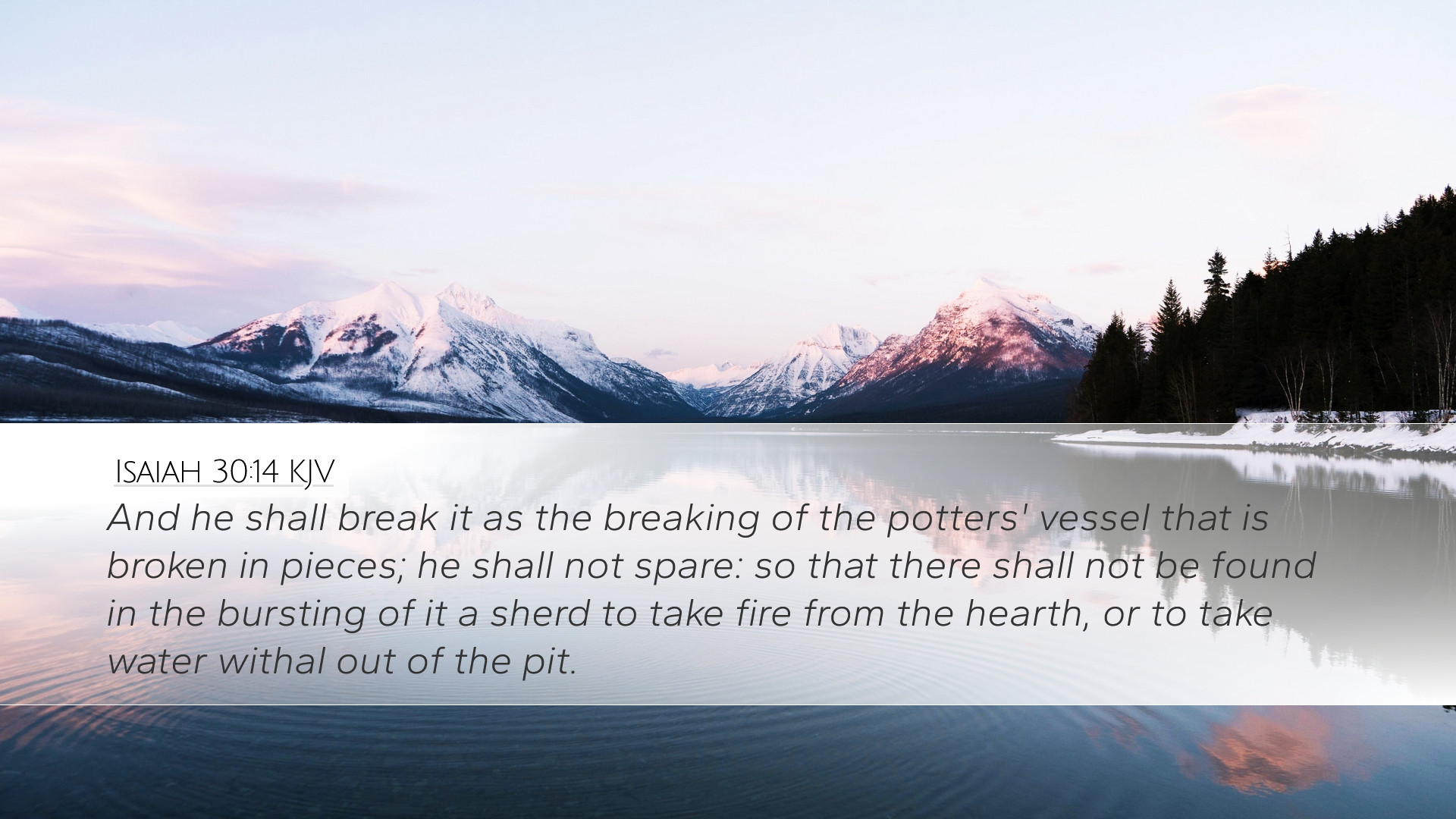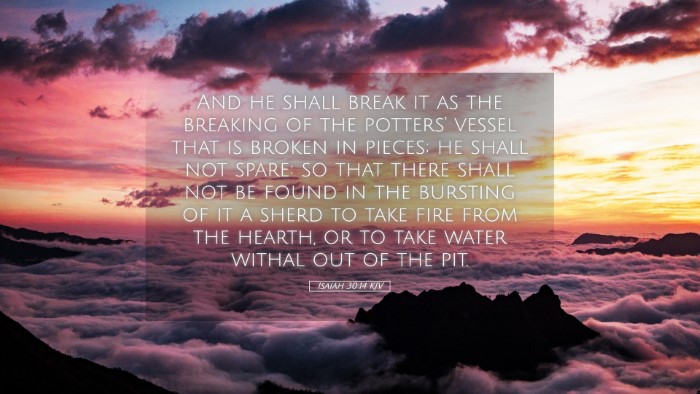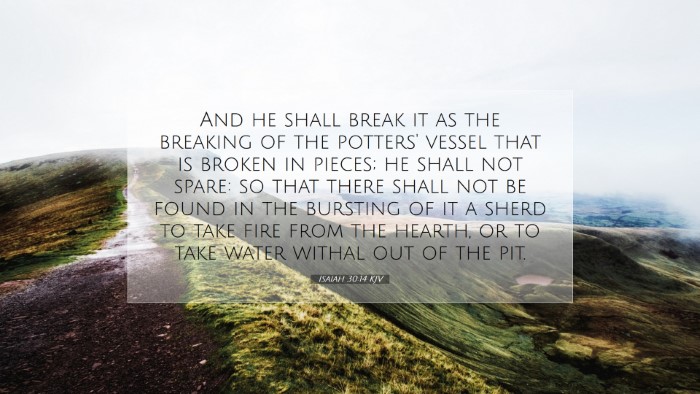Commentary on Isaiah 30:14
Verse Text: "And He shall break it as the breaking of the potter's vessel that is broken in pieces; he shall not spare: so that there shall not be found in the bursting of it a sherd to take fire from the hearth, or to take water withal out of the pit." (Isaiah 30:14, KJV)
Introduction
The passage from Isaiah 30:14 serves as a poignant admonition regarding the consequences of relying on human strength and wisdom instead of trusting in God. This verse finds its context within a larger discourse in which God, through the prophet Isaiah, warns the people of Judah against their inclination to seek alliances with foreign powers for their security and deliverance.
The imagery of a broken vessel illustrates the complete and irrevocable destruction that accompanies the abandonment of divine guidance. Several prominent public domain commentators provide valuable insights that enrich our understanding of this profound scripture.
Insights from Matthew Henry
Matthew Henry notes that the metaphor of the potter's vessel emphasizes the fragility and insignificance of human efforts when placed against the backdrop of divine authority. He comments on how God, in His wrath, can "break" the value and plans of those who rely on strength apart from Him, providing a stark warning to the children of Israel about their misguided choices.
Henry elaborates that this breaking is deliberate and serves a purpose; it conveys the idea that human attempts at fortifying oneself through alliances will ultimately lead to a state of ruin where no fragment or remnant remains—evidencing God’s sovereignty in fulfilling His judgments without exception.
Insights from Albert Barnes
Albert Barnes takes the imagery further by discussing the cultural significance of a potter's vessel in biblical times. He explains that such vessels, though crafted with care, are easily shattered and can be rendered utterly useless. Barnes accentuates that the meaning behind this destruction implies total devastation; the broken pieces lack utility for even the most basic needs such as cooking or drawing water.
According to Barnes, this verse serves as a stark proclamation that trust in human power leads to desolation. He suggests that the Lord's intention is not simply to destroy but to illustrate to the people of Judah the futility of their collaboration with Egypt and reliance on worldly solutions rather than divine faithfulness.
Insights from Adam Clarke
Adam Clarke focuses on the theological implications behind this passage, citing it as a symbol of God’s judgment against unfaithfulness. He positions the verse within a framework of divine justice, wherein God’s actions reflect both His displeasure with Israel's dependencies and His intention to restore them through discipline.
Clarke expands on the concept of the broken vessel by indicating that, in the hands of God, the potential for restoration exists. However, he emphasizes that restoration begins after acknowledgment of failure and a return to faithful obedience. He sheds light on how the imagery of “no sherd” remaining signifies not just physical destruction but moral and spiritual barrenness—an inevitable result of abandoning God.
Theological Reflection
This verse encapsulates a critical moment for the people of Judah—a crossroads between human ingenuity and divine dependence. The metaphorical expressions employed resonate profoundly within the theological discussions surrounding judgment, mercy, and repentance.
For pastors, students, and scholars alike, the implications of Isaiah 30:14 should stir a deeper understanding of the nature of God’s interactions with humanity. The overarching themes of reliance, consequence, and the intricacies of divine discipline are of utmost importance in modern ministry and theological education.
- The fragility of human endeavors: Just as the potter’s vessel can be easily broken, so too are human plans vulnerable without the foundation of God’s wisdom.
- The certainty of divine judgment: The verse reveals the inescapable reality of consequences that arise from turning away from God.
- The path toward restoration: Through discipline, even in destruction, lies the potential for redemption and restoration, contingent upon a turn towards divine trust.
Conclusion
Isaiah 30:14 serves as a grave reminder that true security and deliverance can only be found through a steadfast reliance on God. The insights from noted commentators like Matthew Henry, Albert Barnes, and Adam Clarke provide comprehensive perspectives that enhance our grasp of the text's meaning, allowing for a deeper application in pastoral, scholarly, and personal contexts.
Encouraging a return to faithfulness amid challenges may empower believers to avoid the pitfalls of misplaced trust, affirming the timeless truth that God's ways are higher than our ways, and His plans for us are not for destruction, but for hope and future.


